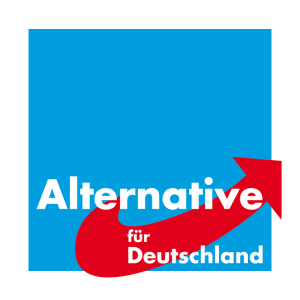The Growing Dissent in Germany: Will the AfD Stand the Test of Democracy?

The recent political landscape in Germany paints a startling picture of a nation grappling with its identity, governance, and the role of democracy within the framework of the European Union. At the center of this debate is the Alternative for Germany (AfD), a party that has seen a meteoric rise in popularity, which has not only caught the attention of citizens but also of the political establishment.
What’s Behind the AfD’s Rapid Rise?
Recent polling data has placed the AfD as the second most supported party in Germany. Its appeal appears to resonate with a populace increasingly concerned about the impact of undocumented migration on the country’s social systems and rising crime rates. Many feel that their needs and opinions are not being represented by the current governing bodies, which they perceive as too closely aligned with the EU’s often-cited open-border policies.
The AfD has staked its platform on a promise to prioritize the needs of German citizens and address the immediate crises facing the nation, including housing shortages and energy instability. But there’s more—among its most vocal commitments is a controversial approach to immigration, with promises of mass deportations that reject the EU’s stance on borders. This platform has ignited heated debates about national identity, security, and fundamental democratic freedom.
The Struggle Against Establishment Power
In response to the AfD’s growing influence, establishment figures within Germany are contemplating drastic measures. Reports suggest that 124 members of the Bundestag are considering a move to ban the AfD altogether based on Article 21 of the German Constitution, which prohibits parties that threaten the democratic order. According to critics, this is a thinly veiled attempt to suppress political dissent; essentially, the state aims to dissolve the party that almost 20% of the electorate supports.
One of the most contentious aspects of this debate is the echo of Nazi Germany that some critics allege surrounds the AfD. Despite these accusations, it’s crucial to recognize that merely banning a party does not erase the sentiments of its supporters, nor does it constitute a solution to the underlying issues that have caused discontent among the populace.
The Broader Economic Implications
As Germany contemplates sidelining the AfD, the country faces larger economic challenges that cannot be ignored. The decisions made by Olaf Scholz’s administration, especially those tied to EU directives and spending initiatives, have led to significant fiscal crises. Citizens are voicing frustration over the perceived misuse of tax money—people want their funds redirected towards addressing immediate domestic issues rather than foreign wars or climate initiatives.
As noted at Extreme Investor Network, the ramifications of ignoring grassroots sentiment could undermine Germany’s economic stability and position within the EU. A fractured political landscape may have broader implications not only for Germany but for Europe as a whole, especially if economic despair leads to dissatisfaction with democratic processes.
The Future of Democracy in Germany
The question remains: can Germany maintain its democratic integrity amid rising tensions and polarization? Banning a political party may provide a temporary respite for the establishment, but it does little to confront the beliefs and aspirations of nearly a fifth of the electorate. Instead, it risks escalating dissent and disenfranchisement.
At Extreme Investor Network, we believe that understanding this evolving political climate provides invaluable insights into Europe’s future. It’s essential to engage in discussions that transcend political rhetoric and address the economic realities facing the citizenry.
While the establishment grapples with the AfD’s popularity, the challenge lies in the delicate balance of governance, civil liberties, and the economic well-being of the German people. History has shown that silencing voices is rarely a viable solution. Instead, finding common ground and dealing with the real issues at hand may be the only way forward for a unified Germany.
As this situation unfolds, stay tuned to Extreme Investor Network for timely updates and in-depth analyses that navigate the complexities of this crucial moment in German politics. Our commitment to delivering insightful, economically-focused content ensures you receive the perspectives that matter most, helping you make informed decisions in this dynamic landscape.

